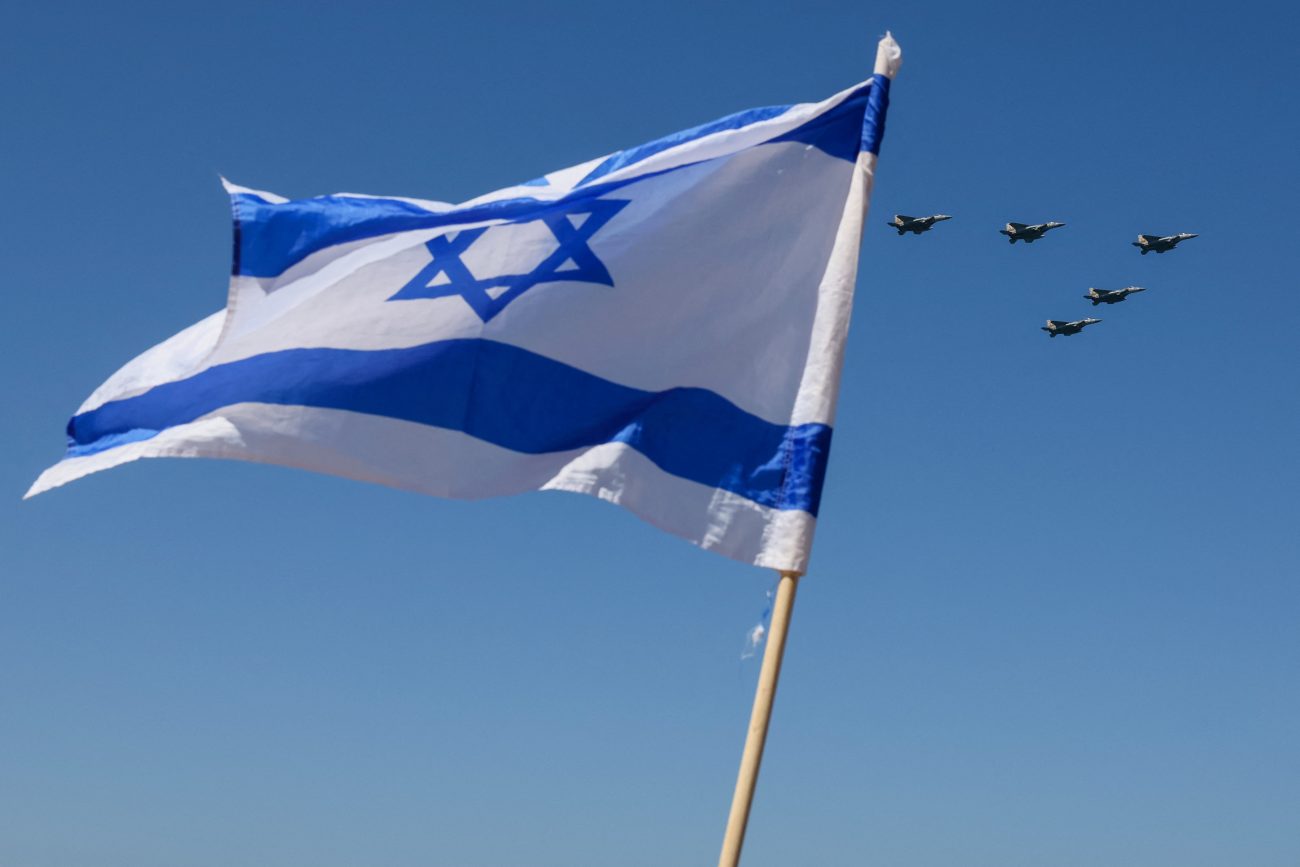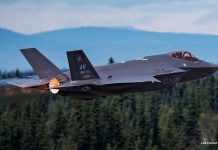Germany is set to acquire three Heron drones from Israel in a deal worth nearly €1 billion ($1.2 billion). The purchase is part of a larger package of more than 80 military procurement projects that Berlin wants lawmakers to approve by the end of the year.
Alongside the drones, the list includes 20 Eurofighter jets and several thousand tanks and armored vehicles.
The proposal calls for three medium-weight, all-weather reconnaissance drones equipped with high-resolution cameras and radar, able to operate day or night.
If finalized, the order would expand Germany’s Heron TP fleet from five to eight. Negotiations are underway between the German and Israeli defense ministries, as per reports.
The breakdown of costs is significant. About €630 million for the drones themselves, plus nearly €300 million in operating expenses from their expected arrival in 2028 through 2034. That brings the total bill to around €930 million ($ 1 billion).
The timing is notable. Just weeks ago, Berlin announced a halt to arms exports to Israel over concerns about the country’s expanding military campaign in Gaza. Yet, Germany is pressing ahead with this drone deal, even as several European partners urge stronger pressure on Prime Minister Benjamin Netanyahu to rein in the offensive.
Major Defense Deals Between Israel & Germany
The drone deal is only the latest chapter in a defense partnership that has deepened over the past few years.
The most high-profile came in September 2023, when the two countries signed an agreement for Germany to purchase the Arrow-3 missile defense system.
Valued at approximately $3.5 billion, it is not only Germany’s entry into Israel’s cutting-edge missile shield but also the single largest defense export deal in Israel’s history.
More recently, in early 2025, Berlin awarded a contract to Israel’s Elbit Systems for PULS rocket artillery systems. The order, worth about €65 million, is being carried out with KNDS Deutschland and ties into a broader trilateral effort with the Netherlands to develop the EuroPULS system.
The arms trade runs both ways. Israel is also a significant buyer of German equipment.
Between 2020 and 2024, it ranked as the third-largest importer of German weapons, accounting for 11 percent of Germany’s total exports.
Globally, Israel sits in fifteenth place among arms importers, representing 1.9 percent of total purchases worldwide, a share that has remained stable compared to the previous five-year period. From the United States, it takes in a smaller share, ranking eleventh with 3 percent of U.S. defense exports.
These numbers show a relationship that is not just transactional but steadily deepening, with both sides increasingly tied into each other’s defense industries.
Israel’s Growing Global Arms Presence
According to the latest annual report from the Stockholm International Peace Research Institute (SIPRI), Israel has climbed to eighth place among the world’s largest arms exporters, overtaking Spain. Between 2020 and 2024, Israel accounted for 3.1% of global arms exports, just edging out Spain’s 3%.
The list is still dominated by the United States, which holds a commanding 43% share, followed by France (9.6%), Russia (7.8%), Germany (5.6%), Italy (4.8%), and the UK (3.6%).
Yet Israel’s steady rise highlights how its defense technology has become sought after, particularly for countries looking for proven systems tested under real-world combat conditions.
India remains Israel’s single biggest customer, purchasing about 34% of its exports, roughly $1 billion worth of equipment annually.
The US follows with 13%, while the Philippines accounts for 8.1%. Israel also supplies a significant share of arms to Germany (13%), Morocco (11%), and the UK (6.9%).
In fact, Israel ranks as the second-largest supplier for both Germany and the Philippines, and third for Morocco and the United States.

Record-Breaking Defense Exports
The growth is not just in rankings but also in raw numbers. Israel’s position in the global rankings is mirrored by a surge in the actual value of its defense exports.
In 2024, arms sales reached a record $14.8 billion, marking the fourth year in a row the country has set a new export high.
The figure represents a sharp jump from $13 billion in 2023, nearly doubling the amount Israel sold just five years ago.
Between 2018 and 2020, annual defense exports hovered in the $7.5 to $8.5 billion range. Since then, demand for Israeli systems—ranging from missile defense to drones and electronic warfare gear—has grown steadily.
The Defense Ministry’s International Defense Cooperation Directorate, known as SIBAT, called the 2024 figure “the highest ever recorded,” underlining the sector’s resilience and rising global demand despite regional conflicts.
India–Israel Defense Partnership
Among Israel’s defense partners, India stands out. Over the past decade, the relationship has shifted from traditional arms sales to broader cooperation in manufacturing and technology transfer.
In 2024, Israel Aerospace Industries (IAI) secured a $777 million contract to supply India with a maritime version of the Barak-8 missile defense system. The deal was signed with Bharat Electronics Limited (BEL), a state-owned company that is serving as the main contractor.
Around the same time, IAI won another $630 million contract to provide long-range surface-to-air missile (LRSAM) systems for four Indian Navy ships, again with BEL as the lead partner under India’s “Make in India” program.
The collaboration extends beyond missiles. Rafael Advanced Defense Systems signed an MoU with Bharat Dynamics Limited to jointly produce the Ice Breaker, a fifth-generation long-range precision strike weapon, for India’s armed forces.
In 2025, Elbit Systems teamed up with India’s NIBE Limited to co-develop and manufacture Advanced Universal Rocket Launchers locally.
Private industry has also entered the picture. Adani Defence, in partnership with Elbit, developed the Drishti-10 surveillance drone, derived from Elbit’s Hermes 900.
The drone, already supplied to India’s army and navy, marked the first high-profile UAV project led by India’s private sector under the Make in India initiative. Adani’s broader ties with Israel are well established; it even operates Israel’s second-largest port in Haifa.
Adding to this expanding portfolio, Rafael signed a technology transfer agreement with Bharat Dynamics in 2025 for its Torbuster system, an advanced underwater defense solution designed to shield surface ships and submarines from incoming torpedoes. The system will be produced in India, further anchoring the cooperation in line with New Delhi’s push for local manufacturing.
Together, these deals highlight how the India–Israel defense partnership is shifting from simple buyer-seller dynamics to deeper joint production and technology-sharing ventures.
Israel’s Growing Influence
From drones and missile systems to joint weapons development, Israel’s defense industry is increasingly shaping the global arms market.
Germany and India stand out as key partners, reflecting not only the reliability and technological edge of Israeli systems but also a strategic shift toward long-term cooperation and localized production.
Record export numbers and rising global rankings suggest that, even amid regional conflicts, Israel’s defense sector continues to grow steadily on the international stage.
- Shubhangi Palve is a defense and aerospace journalist. Before joining the EurAsian Times, she worked for ET Prime. She has over 15 years of extensive experience in the media industry, spanning print, electronic, and online domains.
- Contact the author at shubhapalve (at) gmail.com




